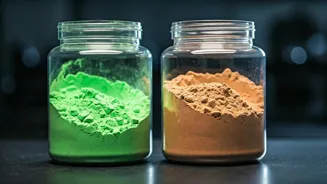Creatine: Power Up!
Creatine is a naturally occurring compound in the body, predominantly stored in muscles. Its primary function is to aid in the production of ATP (adenosine
triphosphate), which is the energy currency of cells. When you engage in high-intensity activities like weightlifting or sprinting, your body uses ATP rapidly. Creatine helps replenish ATP, allowing you to push harder and longer. It achieves this by increasing phosphocreatine stores, which the body uses to quickly regenerate ATP. Many studies support creatine's effectiveness in boosting strength, power, and muscle mass. It is particularly beneficial for short bursts of intense exercise. Individuals supplementing with creatine often experience enhanced performance, especially in activities that require explosive movements. Creatine has also been associated with improved cognitive function and potential benefits for brain health. Different forms of creatine exist, with creatine monohydrate being the most well-researched and cost-effective option.
Protein Powder Revealed
Protein powder, on the other hand, is a convenient way to increase protein intake. Protein is essential for muscle repair, growth, and various bodily functions, including enzyme and hormone production. It is composed of amino acids, which are the building blocks of proteins. Protein powders are derived from various sources, with whey, casein, soy, and plant-based options being the most common. Whey protein is rapidly absorbed, making it ideal for post-workout consumption. Casein protein is digested slowly, providing a sustained release of amino acids. Plant-based protein powders offer alternatives for vegetarians, vegans, and those with sensitivities to dairy. Protein powder helps support muscle recovery, reduce muscle soreness, and promote muscle growth when combined with resistance training. The recommended daily protein intake varies based on individual factors like activity level, but generally, active individuals require a higher protein intake than sedentary individuals. Protein powders simplify meeting these increased needs, especially for those who find it challenging to consume sufficient protein through whole foods.
The Key Differences
While both creatine and protein powder are popular among fitness enthusiasts, they serve different purposes. Creatine primarily enhances performance by providing energy for short bursts of activity, while protein powder primarily supports muscle repair and growth. Creatine works by increasing the availability of ATP, the energy currency for short, high-intensity efforts. Protein powder, on the other hand, provides the building blocks (amino acids) needed to rebuild and grow muscle tissue after exercise. Both supplements can be used together to maximize fitness gains, but understanding their distinct mechanisms is crucial. Creatine is most effective for strength, power, and short-duration exercises, whereas protein powder is essential for overall muscle recovery and growth. Consider creatine if your primary goal is to boost performance in the gym or sports. If your focus is muscle recovery and growth, protein powder is a better choice. A balanced approach, combining both supplements, may be ideal for those seeking comprehensive fitness benefits.
Who Needs What?
The choice between creatine and protein powder often depends on individual fitness goals and dietary needs. Athletes involved in strength and power sports, such as weightlifters and sprinters, often benefit most from creatine supplementation due to its performance-enhancing effects. Individuals aiming to increase muscle mass and improve overall body composition should consider protein powder to ensure sufficient protein intake to support muscle growth and repair. People with inadequate protein intake from their diet may also benefit from using protein powder. Vegetarians and vegans may find plant-based protein powders helpful in meeting their daily protein requirements. It is not uncommon for individuals to use both supplements in conjunction, particularly those looking for comprehensive fitness gains. Creatine can enhance performance, while protein supports muscle recovery and growth, creating a synergistic effect. However, consulting a healthcare professional or a certified sports nutritionist is recommended to determine the best approach for individual needs and goals.
Maximizing Results
To maximize the benefits of creatine and protein powder, it is essential to consider proper usage and timing. For creatine, the common approach involves a loading phase followed by a maintenance phase. During the loading phase, users typically consume a higher dose of creatine (e.g., 20 grams per day) for a week to saturate muscle stores, followed by a maintenance dose (e.g., 3-5 grams per day). Protein powder can be consumed at any time of the day, but it is most effective when taken after workouts to support muscle recovery. Combining protein powder with a source of carbohydrates can further enhance muscle recovery by replenishing glycogen stores. For optimal results, combine creatine and protein powder with a balanced diet, regular exercise, and sufficient rest. Proper hydration is also essential, particularly when taking creatine. Remember that supplements are intended to complement a healthy lifestyle, not replace it. Prioritize a balanced diet, adequate sleep, and consistent exercise for the best outcomes in your fitness journey.












